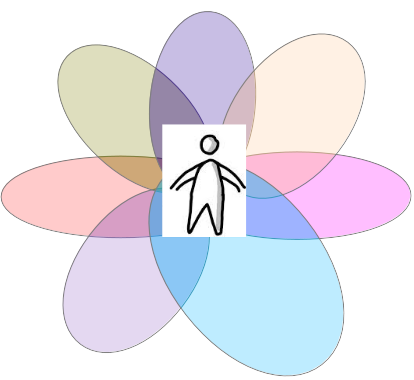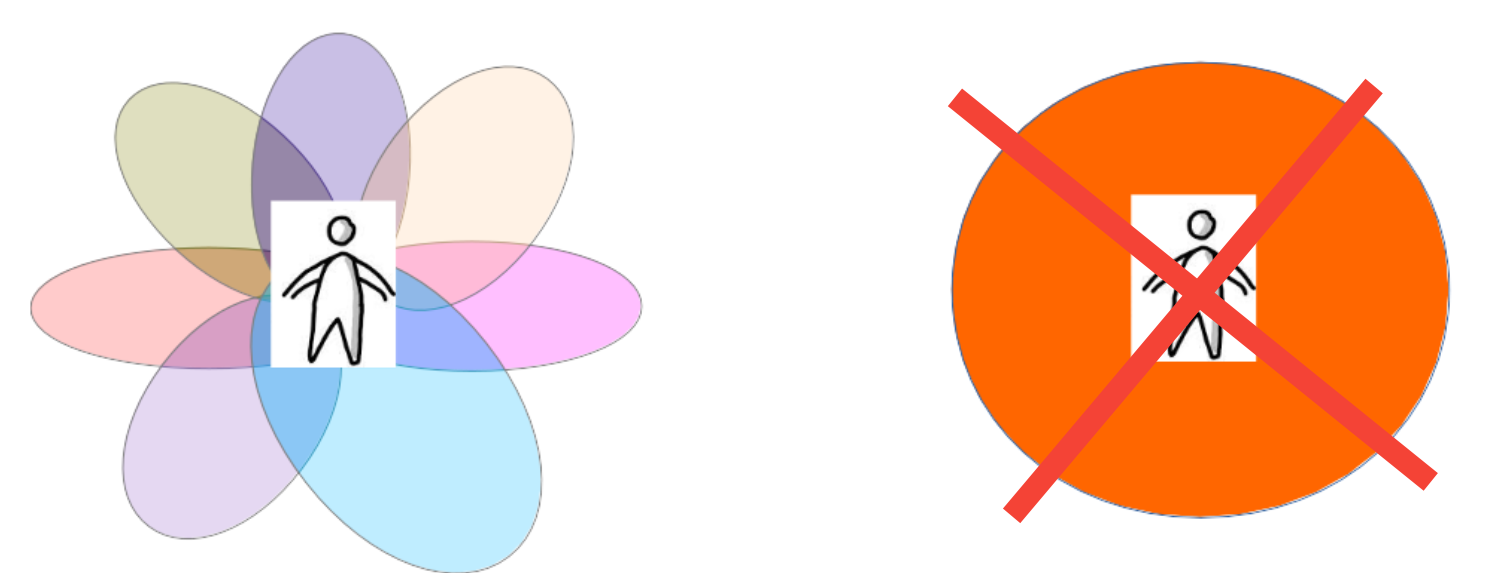Dialogic Intercultural Competence: What It Is and Why You Need It.
Who am I and who are you?
Starting with thIs kind of questions you will discover much more than you might think. Take your time for this unit which offers you new perspectives on issues which are extremely relevant for an empowering pedagogic work.
Warm up
Take two nice pieces of paper for each of you.
They can be white or coloured, as you like.
Now take one of them and write down: “Who am I?”
Reply, silently. Write down just key-words. 5 min time.
Feel free to do it in the way you want to. There is no right or wrong.
And don’t feel you should write everything, you are more than what fits on a piece of paper!
5 min are up?
Don’t comment yet with you buddy. Take first the second piece of paper and write down: “Who have I been?”
Choose, depending on your age, 3 years which are far enough from each other, like: 2010, 1990, 1970. Or: 2015, 2005, 1995.
So, now, please decide and write them down.
Done?
Now go on a journey through time and think of who you have been. That is: who were you e.g. 2010? For each of the three years you wrote down, visualise yourself and try to remember things like: what did you wear? What words did you use? What did you like? What music did you listen to? What was normal for you?...
Write down key-notes beside every year.
7 min time.
When you are done, share what you wrote on the first and on the second card and discuss together: What do your answers say about identity? What characterises it?
On one piece of paper, collect both your answers.
Learn
Identity is multifaceted and dynamic.
It is multifaceted, as we are not just one thing: we are not just a gender, a profession, a role, a (non)believer, a parent/a child, a good friend, a (im)patient person, a person with specific physical traits…. we are all this at the same time.
It is dynamic as it is continuously changing, even if we don’t notice it from day to day but more from year to year or decade to decade.
How does that happen? Think of yourself. How did you become who you are today?
Exchange with your buddy and write down your key reflections.
When you are done, continue…
Dive in 1
Identity is dialogic, we develop it in contact with the environment around us. As Buber said: I am not just myself in the sense that I am different from you, but I am myself also because of you, I am I-Thou (me-you). Indeed we are what we are not just because we are born unique but also because of all those contacts we have had with the external words, in particular with human beings. There are things which have transformed us more than others (let’s think of pandemic) or people who had a stronger impact on us than others (e.g. parents, teachers…).
Who would you have been, if you had another family, went to another school, had another teacher, grown up in another area…?
You don’t need to answer this question, but now reflect with your buddy: what does all of this mean for us in our role as teachers/educators?
Write down your reflections.

Dive in 2
“Culture” is a word which we can use to describe what influences
-
the way I perceive the world around me, how I decode it,
-
the way I act in relation to it, how I code my messages.
Culture has an impact on us at a cognitive level (what we know), at a behavioural level (how we do things) and at an emotional level (what we feel).
Now look at the notes you wrote about yourself.
Who, when, how did you learn the things that you know, the way you should act to reach your goals in different contexts and situations and the way to interpret and evaluate what is happening?
Draw yourself and write down around you the first 7 contexts in which you have absorbed cultural knowledge (e.g. group of friends; family; music school; sport association…) which come to your mind.

When you are done, draw one of the young people you work with, choose one who you usually perceive through the lens of one category (for example: nationality): What contexts, i.e. cultures, influence their being and their development?
Show your ‘artwork’ to your buddy and discuss what are possible negative consequences of the misconception of cultural identity.That is: How does it impact me and therefore the kid, when I ignore its multifaceted and dynamic identity and perceive them through just one of their numerous characteristics and cultures?


Dive in 3
Gender, migratory background, disabilities, socio-economic status, religion - are examples of categories which frequently have an impact on how we perceive someone.
This has an impact on how we act towards this person, which might even transform into a self fulfilling prophecy.
In interactions with students with migratory background preconceptions often happen on the following three levels:
-
cognitive: e.g. expecting competences that they might not have (you certainly speak Spanish as your mom is from Cuba); deny them epistemic authority (you were born in another country, therefore you cannot be an expert on the history of this city)
-
behavioural: e.g. underestimation of their language proficiency; underestimation of other abilities; paternalism (speaking for them)
-
affective level: e.g. denial of their belonging (speaking of we and you; speaking of you as a foreigner); identity crisis: natural plural identity is problematised by the outside world; experiences of discrimination.
Think of situations in which preconceptions have influenced your behaviour or the behaviour you have observed on others.
Choose 1 to 3 concrete examples, write them down and upload them, if you want to make other educators reflect on behaviours they might themselves display, without even noticing it.

Transfer 1
Do you want to help your group to see how all of them have similarities and differences, going beyond the usual categories they might perceive each other for example through gender, nationalities, religion… ?
Prepare some questions, like “You love to play minecraft” “You have younger siblings” “You are born in spring or summer” “You love to eat pasta” … and ask them to position themselves in the room. You can make a line on the floor with a tape to divide binary answers or to use it as a scale within two poles to let the kids display along it.
You can let people who have the same answer exchange between them or you coordinate an exchange in the whole group. Remember to have a reflection round at the end.
What did your group observe?
The core of Intercultural dialogue is deconstructing identity. That means understanding that every human being is not a category but a person that acts depending on their uniqueness, on their many cultural belongings, on their experiences as well as on the specific situation in which they are embedded in!
Reflect
When you meet your young people again, you will certainly be more conscious about the way you perceive them and the way you act with different ones. This consciousness might decrease over time.
What don’t you want to forget? What messages do you want to send to yourself?
Write it down. Put this message in an envelope. Close the envelope and give it to your buddy.
Decide when you want to exchange your letters.
